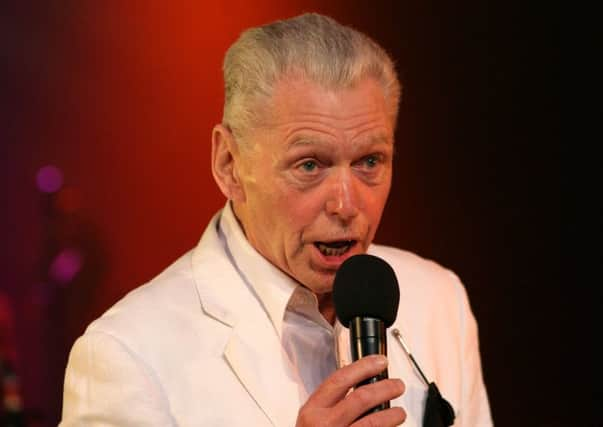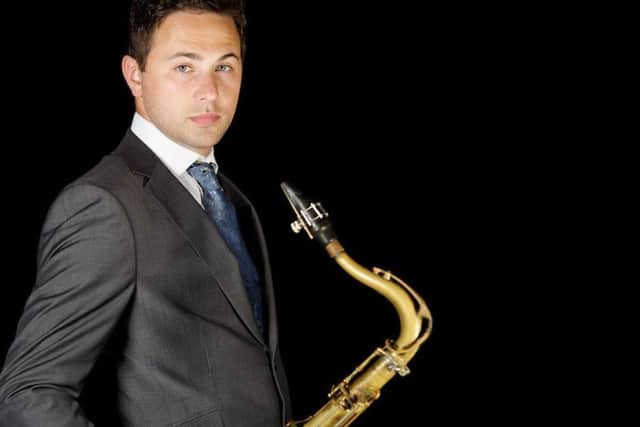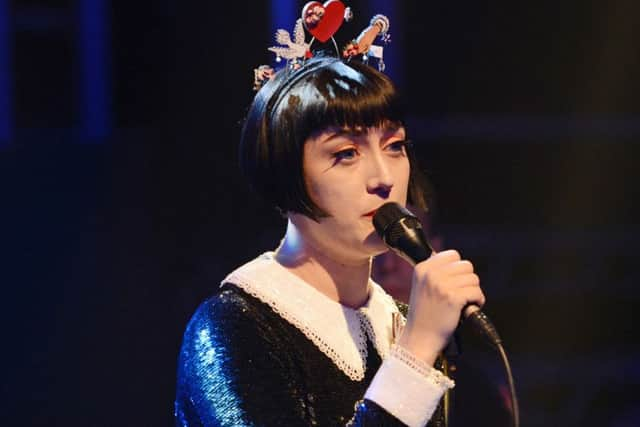Glasgow Jazz Festival reviews: Georgie Fame | Rose Room Orchestra Fantastique | Hailey Tuck


The big-hearted reception given to Georgie Fame by this Glasgow Jazz Festival audience contrasted markedly with that which he received back in 1962, as a green, 16-year-old pianist supporting Gene Vincent and Billy Fury before a bottle-throwing crowd at Glasgow’s Empire. There were many such anecdotes as, presiding genially from his trademark Hammond organ, the veteran R&B singer provided a droll, reflective and occasionally vague ramble through his six-decade career, paying tribute to those who inspired him along the way – not least Booker T Jones, prompting him to kick off with the irresistible 12-bar riff of Green Onions, the instrumental that prompted Fame to buy his first Hammond.
Underpinned smartly by sons Tristan and James, on guitar and drums respectively, that grungy, gurgly organ juggernaut carried Fame’s terse, swingy vocals in an exuberant blues by Floyd Dixon, a soul-inflected rendition of Willie Nelson’s Time Slips Away and even the Tex-Mex-inflected country of Jim Reeves’s He’ll Have to GoBob Dylan’s Everything Is Broken was dedicated to politicians, with Fame urging us through a boisterously profane refrain, leading on to some less focussed ramblings on political correctness. There were also, of course, his Sixties hits – the still sassy Yeh Yeh, and a stomping Ballad of Bonnie and Clyde.
Advertisement
Hide AdIf Fame’s was an affectionate trawl through the past, a short opening spot from two rising young stars of Scottish jazz, pianist Fergus MacCreadie and warm-toned vocalist Luca Manning, pointed to bright futures indeed.


JIM GILCHRIST
Rose Room Orchestra Fantastique, St Luke’s, Glasgow ****
AMID the appropriately carmine glow and cabaret tables of St Luke’s, Glasgow Jazz Festival kicked off with a vengeance by tapping into Parisian “hot club” roots. Perhaps it was due to playing the same stage on which, earlier this month, they scooped both Best Vocalist and Best Band titles in the Scottish Jazz Awards, but singer and swing violinist Seonaid Aitken and her Rose Room Quartet, here augmented rewardingly by saxophonist Konrad Wiszniewski and the Capella String Quartet, were in frequently sizzling form.
The spirits of Reinhardt and Grappelli were never far away as Aitken’s lithe fiddle and Wiszniewski’s soprano sax twined and sparred with demonic energy over the thrumming accompaniment of double-bassist Jimmy Moon and rhythm guitarist Tam Gallacher in numbers such as the familiar hook of Minor Swing and the trill-trading of Limehouse Blues, lead guitarist Tom Watson combining rakish panache with crystal-clear tone, which particularly shone out in some slower-tempo numbers.


Wiszniewski switched between soprano and tenor saxes, deploying the latter with characteristic muscle, but also reflecting the warmth and soul with which Aiken delivered songs such as Edge of Love and the chanson Je Suis Seul Ce Soir.
The Capella foursome proved an effective compliment, providing a languid shimmer or executing a slinky palais glide, but particularly adding richness to the Reinhardt classic Nuages and the full-toned flow of Don’t Worry About Me, and contributing a cameo of their own in their wistful string setting of My Funny Valentine.
JIM GILCHRIST
Hailey Tuck, St Luke’s, Glasgow ***
Texan jazz vocalist Hailey Tuck is correct to have concluded that the world is in no way in need of another singer purely in thrall to the big band sounds of the 1920s. Her mission to contemporise the style a touch is savvy and well-intentioned, and has brought about a hook-up with vastly experienced, acclaimed and well-connected American musician, songwriter and record producer Larry Klein, and consequently a deal with Sony for her debut album Junk. All of which may yet spell a big commercial breakout.
Advertisement
Hide AdBut the precise extent of Tuck’s appeal, beyond her playful and mellowly understated voice, may ultimately depend on your idea of contemporary. With her lightly swinging covers of songs by the likes of The Kinks, The Zombies, Colin Blunstone, Paul McCartney and more at this Glasgow Jazz Festival appearance, she propelled 20s-style jazz singing into the future all of about 40 or so years, to the 1960s and 70s. Not exactly a quantum leap.
Tuck sings from the heart, however, and with her twee-chic style (she wore a floor-length gold ballgown with bare feet) and her likeably chatty way – the loquacious breaks between songs routinely outlasted the songs themselves – she’s easy to root for.
Advertisement
Hide AdIt was as fiercely modern as things got, but her offbeat version of Pulp’s Underwear transported us at least a little further forward in time to 1995. Jazz standard My Funny Valentine got a look in too, albeit for a charming reason: “if you’ve been calling Dad for occasional rent money for 10 years,” she explained, “you put his favourite song on your album.” Bringing a show that had started with Leonard Cohen’s That Don’t Make It Junk thematically full circle, Tuck’s take on McCartney’s Junk was a satisfyingly bittersweet and feather light final touch.
MALCOLM JACK